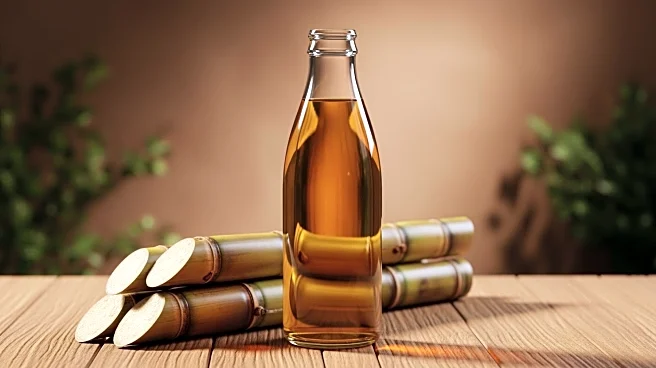What's Happening?
Coca-Cola has started selling a soda made with cane sugar in the United States, following a request from President Trump earlier this year. The company confirmed that the new soda is being rolled out to
select cities and retailers. This move comes after President Trump announced in July that Coca-Cola had agreed to use cane sugar in its cola products. The decision aligns with the company's ongoing success with sugar-free sodas and healthier drink options, such as Coca-Cola Zero Sugar, which saw a 14% global volume growth. The introduction of cane sugar soda is part of Coca-Cola's strategy to diversify its product offerings and cater to health-conscious consumers.
Why It's Important?
The introduction of cane sugar soda by Coca-Cola marks a significant shift in the company's product strategy, potentially impacting consumer preferences and market dynamics. The move could appeal to health-conscious consumers who prefer natural sweeteners over high-fructose corn syrup, which has been criticized by health experts. This change may also influence other beverage companies to reconsider their sweetener choices, potentially leading to broader industry shifts. Additionally, Coca-Cola's decision could affect the U.S. sugar market, increasing demand for cane sugar and impacting pricing and supply chain dynamics.
What's Next?
Coca-Cola's rollout of cane sugar soda is expected to continue in select cities, with potential expansion based on consumer response and supply chain capabilities. The company may face challenges in sourcing sufficient cane sugar to meet demand, given its limited availability in the U.S. Stakeholders, including health advocates and industry competitors, will likely monitor the impact of this product launch on consumer health and market trends. Coca-Cola may also explore further product innovations to align with its health-focused agenda and respond to evolving consumer preferences.
Beyond the Headlines
The shift to cane sugar in Coca-Cola products raises ethical and health considerations, as it challenges the long-standing use of high-fructose corn syrup in the beverage industry. This change could spark discussions on the health implications of different sweeteners and the role of corporate responsibility in promoting healthier consumer choices. Additionally, the move may influence cultural perceptions of traditional soda recipes and their impact on dietary habits.










